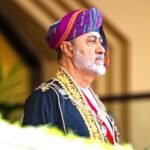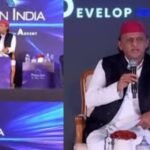
ARABIAN TIMES NEWS NETWORK
In an increasingly heated political atmosphere, Samajwadi Party (SP) chief Akhilesh Yadav has intensified his criticism of the ruling National Democratic Alliance (NDA), raising strong concerns over media integrity, governance failures, and policies that he claims undermine India’s democratic values. Speaking at a recent public interaction, Yadav accused the government of using both institutions and media platforms to distort narratives and suppress genuine opposition voices.
A major point of contention has emerged around what many SP supporters describe as a defamation campaign against Akhilesh Yadav by Aaj Tak, one of India’s leading news channels. According to the party’s communication wing and various independent commentators, Aaj Tak has allegedly broadcast misleading interpretations and selectively edited segments that portray Yadav in a negative light. While the channel has not responded to these allegations, the controversy has fueled a broader debate on media ethics and the role of news organizations in shaping political perceptions.
Yadav stated that Indian politics today is witnessing an “alarming shift,” where instead of questioning those in power, sections of the media appear more invested in targeting opposition leaders. He emphasized that such practices weaken public trust and dilute the very essence of journalism. “When media becomes a tool of propaganda, democracy suffers. The responsibility of journalists is to question the government, not to shield it,” he remarked, drawing applause from supporters.
Moving beyond media concerns, Yadav also took aim at the NDA’s governance approach. He raised sharp objections to the government’s recent welfare announcements, arguing that many of these schemes are “headline-driven” and fail to address the deeper issues of rising unemployment, rural distress, and declining job creation. He criticized the ruling establishment for what he called “advertising governance instead of delivering it,” citing the widening gap between promises and ground realities.
The SP chief further questioned the transparency of recent electoral processes, repeating his long-standing demand for institutional reforms. He accused the Election Commission of overlooking irregularities raised by several opposition parties. “Elections should be a celebration of democracy, not a test of how many obstacles the opposition can endure,” he said, reiterating his call for greater accountability. The controversy involving Aaj Tak has also sparked reactions from civil society groups and independent media watchdogs who have urged news platforms to maintain neutrality, especially in an election-heavy national climate.
They argue that even the perception of bias can erode credibility, reminding organizations of the need to uphold professional standards. Many analysts believe that disputes of this nature reflect a deeper malaise within the media ecosystem, one where political pressures, corporate interests, and competitive compulsions blur the line between journalism and persuasion. Despite the challenges, Akhilesh Yadav remains undeterred. His message, directed both at citizens and the media, calls for a renewed commitment to truth, fairness, and democratic values. As political tensions escalate, the unfolding debate over media responsibility is likely to remain at the forefront of India’s public discourse.









